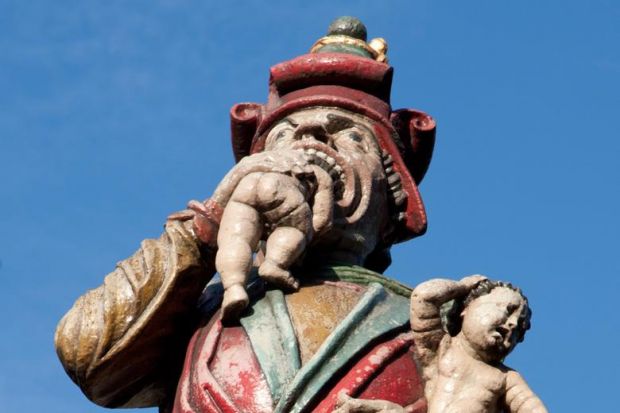“In Switzerland they had brotherly love, they had 500 years of democracy and peace, and what did that produce? The cuckoo clock.” So said Harry Lime, played by Orson Welles, in the most well-known lines from the Third Man.
The list needs a refresh (Germany is the traditional home of cuckoo clocks, for a start). Five hundred years of Swiss democracy has produced the most electorally successful anti-immigration political party in present day Western Europe.
The Swiss People’s Party (SVP) is having an enormous impact on the nation’s universities – stellar performers internationally – after bringing about a 2014 referendum in which voters narrowly backed restrictions on immigration, causing a crisis in relations with the EU.
I visited Switzerland to research last week’s Times Higher Education cover feature, on the worrying prospects faced by the nation’s universities (the EU may expel Switzerland from its research programmes next year in response to the referendum result) and lessons from their experiences for Brexit Britain. The views of two senior figures from the SVP are included in the feature.
But what has happened in Switzerland raises wider issues for universities across Europe and the West. The rise of right-wing populist parties and politicians, if it results in electoral successes anything like the kind seen in Switzerland, would have a huge impact on universities.
“The real dividing line to think of in modern politics has less to do with traditional positions of right versus left, more to do today, with what I would call the modern choice, which is open versus closed.”
Not Orson Welles this time, but another great actor: Tony Blair, in a 2007 speech.
In the era of Brexit, Donald Trump, Marine Le Pen and Geert Wilders, political observers have resurrected Blair’s theme.
“From Warsaw to Washington, the political divide that matters is less and less between left and right, and more and more between open and closed,” ran a recent cover story in The Economist. The key questions, it said, are: “Welcome immigrants or keep them out? Open up to foreign trade or protect domestic industries? Embrace cultural change, or resist it?”
That glosses over gulfs in wealth and education that were essential factors in the Brexit vote (and some would say Blair’s evangelical stance on the virtues of globalisation helped bring about that result). But undoubtedly “open versus closed” is a crucial theme in modern politics, one that matters a huge amount for universities.
More barriers to immigration means slowing one of the most important currents of people around the world – flows of international students and researchers.
“Ideas very often travel with people”, Lino Guzzella, president of ETH Zurich, told me. “If Europe wants to catch up with the US and technology developments in Asia, there is no way we should start building barriers and boundaries and fences among ourselves,” he said.
Universities thrive on openness to foreigners, but also on a climate of openness to ideas.
The “closed” political camp (as Blair and the Economist would see it) often encourages a hostility towards “experts” that leaves academics and universities in a difficult place.
In the case of Brexit, this stance was expressed by Michael Gove, who infamously declared that “people in this country have had enough of experts”.
My colleague David Matthews has highlighted a study showing a significant decline in trust in science among American conservatives since the 1970s, suggesting that Donald Trump’s views may be one manifestation of this.
Can universities do anything about all of this?
I spoke to one Swiss parliamentarian, from the liberal FDP, who expressed the regretful view that universities were seen as part an elite, moneyed class – and that their views would have been disregarded by voters in the immigration referendum campaign.
There is a big challenge for universities, to see if they can ever hope to communicate with, and influence, the general public on the benefits they bring to society and on the benefits of openness.
There’s an odd statue in the Swiss capital, Bern, known as “the Child Eater”. In the centre of a fountain is a pillar, topped by a toothy ogre who has a baby stuffed in his mouth and is carrying several more crying infants in a sack, ready to devour them.
The fountain is 500 years old and must have haunted the nightmares of Bern children for the same length of time. Whatever the original purpose of the statue, it is a clear gift to trite journalistic metaphors.
Will anti-immigration politics devour Swiss universities, or at least chew off a few limbs?
Universities around the world have reason to watch closely what happens in Switzerland. They might be next.
Register to continue
Why register?
- Registration is free and only takes a moment
- Once registered, you can read 3 articles a month
- Sign up for our newsletter
Subscribe
Or subscribe for unlimited access to:
- Unlimited access to news, views, insights & reviews
- Digital editions
- Digital access to THE’s university and college rankings analysis
Already registered or a current subscriber?







